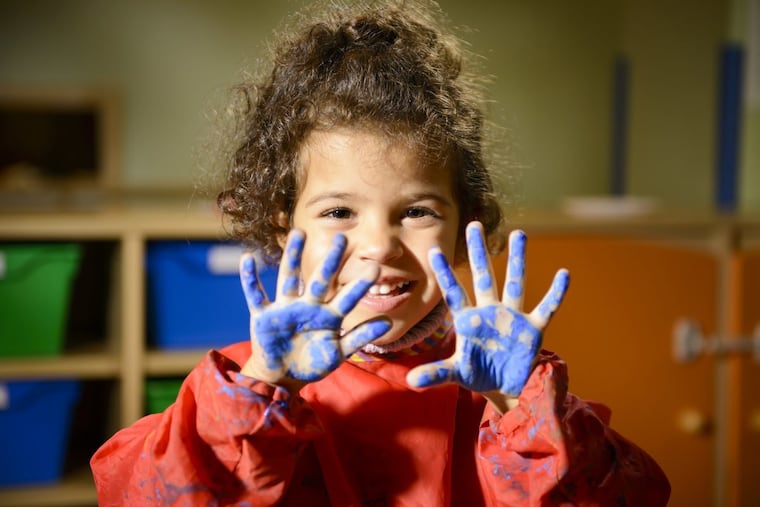What do I need to know about preschool expulsions?
Last month, we reported communities nationwide including Philadelphia are experiencing high rates of 1- to 3-year-olds being suspended or expelled from preschools and day care centers. Marsha Gerdes, PhD, a senior psychologist at PolicyLab at Children's Hospital of Philadelphia, answers additional questions from readers about this issue.

Last month, we reported communities nationwide including Philadelphia are experiencing high rates of 1- to 3-year-olds being suspended or expelled from preschools and day care centers. Preschools are expelling children at a rate three times higher than K-12 schools.
We had spoken with Marsha Gerdes, PhD, a senior psychologist at PolicyLab at Children's Hospital of Philadelphia, who along with the Public Health Management Corporation had participated in a webinar examining the issue. Dr. Gerdes received additional questions and comments from readers from the article. She addresses them below:
Why is pre-k important for child development?
There is strong research showing children benefit from being in pre-k. Not only do they start kindergarten with the ability to respond to demanding experiences with socially tolerable and flexible emotions, pre-k also sets children up for better academic achievement down the road.
Pre-k experience has also been shown to:
Increase the amount of time parents and children spend reading together
Develop a child's love of books and reading
Teach children how to listen to others and be listened to
Give children an understanding of the joy of following routines
What is the sequence of events that typically occurs before a child is expelled?
Every center deals with behavior incidences in their own way.
The worst case scenario is that parents receive no warning before a child is expelled. Usually in this case, the teacher and center director feel helpless and see expulsion as the only choice.
More commonly, centers report behavior problems to the parents when they occur and sometimes ask parents to find help for the child. The teacher may also request the child be moved to a different class or spend time out of the room. Occasionally, parents are told there is a safety concern for other class members due to their child's behavior. Often this is a warning that if the behavior happens again, the family will be either asked or told to withdrawal.
The best case scenario is that each teacher tracks behavior problems to identify patterns, such as who was involved or when behaviors occur, and develop strategies with parents to help the child. Preventive methods, such as room rearrangement, schedule changes with less transitions, and more thoughtful recognition and praise for positive behaviors, can make a big difference for most children. Some children will benefit from Early Intervention or mental health services, and those providers can coordinate with teachers to share goals and action plans for the child.
What's the impact on other children?
When a teacher is focused on one child in the classroom with challenging behavior, other children may miss out on getting attention for their positive behaviors. Additionally, when a child's behavior challenge involves biting or hitting another child or throwing things, it does place other children in the classroom at risk. It's important for centers to educate all parents on strategies to reduce behavior challenges.
Why do you think minority children nationwide are expelled or suspended more often than their peers? Hispanic and African American boys combined represent 46 percent of all preschool-age boys, but 66 percent of preschool suspensions.
A leader in this area of research, Yale School of Medicine's Walter Gilliam, PhD, suggests that implicit bias is playing a role here. Past cultural beliefs, experiences, and perceptions of experience shape our unconscious assumption about people and put us in a position to look for and see exactly what we expect. So, pre-k staff who may believe that boys, particularly African American boys, are more aggressive are more likely to watch boys of color more closely and see aggression. Staff who observe both a boy and a girl bump the child in front of them may think the girl did it accidentally while the boy pushed with intent to hurt. This kind of implicit bias can also influence a teacher's perception about whether a problem can be solved.
How does Positive Behavior Intervention Supports serve as a potential way to reduce suspensions and can PBIS improve the entire school environment for all children?
PBIS is a child care center model that provides support at the school-wide, classroom and individualized levels in order to build children's social-emotional skills. It encourages child care centers to create expectations around behavior not just for children with behavioral challenges, but for all children, and helps teachers form problem-solving teams.
PBIS teaches positive behaviors through developing methods of praising children and developing a shared language about behavior and praise. PBIS centers keep track of behaviors and use data to guide prevention and interventions. It includes teacher training to build confidence in their skills and merge social-emotional teaching into fun school activities. PBIS thrives when everyone is involved—teachers, parents, bus drivers, cooks and children.